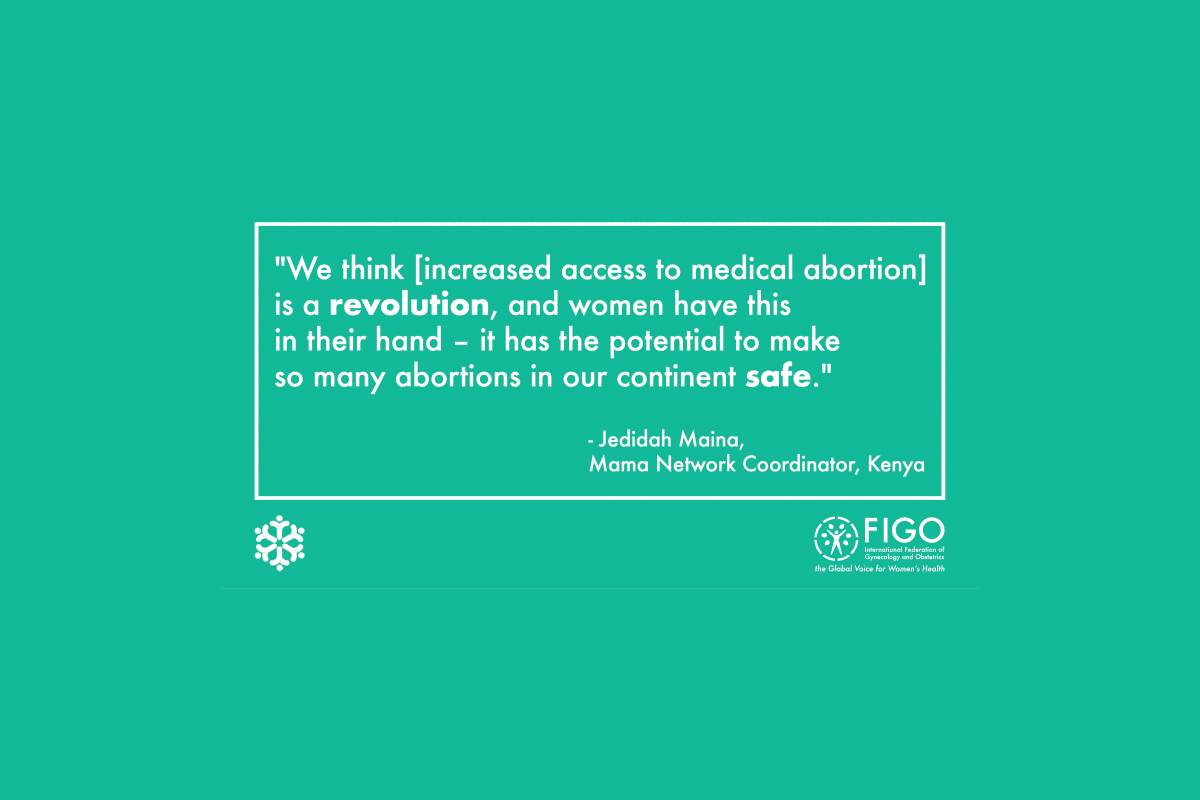
by Lucía Berro Pizzarossa, Michelle Maziwisa, Ebenezer Durojaye
Health and Human Rights Journal June 2023
Abstract
Self-managed abortion holds particular promise for revolutionizing people’s access to quality reproductive care in Africa, where the burden of abortion-related mortality is the highest globally and where abortion remains criminalized, in violation of various internationally and regionally recognized human rights. Increasingly safe and effective, self-managed medication abortion is still subject to many restrictions, including criminal laws, across the continent. Drawing on recent evidence and human rights developments around self-managed abortion, this paper explores whether and to what extent Africa’s regional legal framework builds a normative basis for the decriminalization of self-managed abortion. We conclude that the region’s articulation of the rights to dignity, to freedom from cruel, inhuman, and degrading treatment, and to non-discrimination, among others, provides strong grounds for decriminalization, both concerning individuals who need abortions and concerning the constellation of actors who enable self-management.
Introduction
Self-managed abortion is a model of abortion care used globally in liberal and restrictive settings alike. The increased use of abortion medicines (misoprostol and mifepristone) is already associated with a global reduction in abortion-related morbidity and mortality. This increase, coupled with growing grassroots energy and efforts to expand access to safe abortion generally, has the potential to transform the landscape across Africa.
The World Health Organization (WHO) demands that states recognize self-management as a potentially empowering and active extension of the health system and task-sharing approaches, recommending self-managed abortion as an option until the 12th week of pregnancy. Moreover, recent research indicates that self-managed abortion, with accompaniment-group support and linkages to the health care system, may be an effective and safe option for abortion beyond the first trimester. United Nations treaty monitoring bodies and WHO have urged states to remove legal and policy barriers to abortion, which have long hindered pregnant people’s access to abortion care. Restrictive abortion laws disproportionately harm underserved communities that already face barriers to accessing care and have various grave consequences for people’s health and lives. In addition, evidence shows that criminalization contributes to opportunity costs, including travel costs, delayed abortion and post-abortion care, emotional distress, financial costs, and sexual and financial exploitation. Such conditions mean that more pregnant people may turn to unsafe abortions. However, despite the increasing evidence and human rights standards in this regard, there is still work to be done to guarantee the enjoyment of abortion rights and embrace the potential of self-managed abortion. The African region is home to the Protocol to the African Charter on Human and Peoples’ Rights on the Rights of Women (Maputo Protocol), an instrument that aims to strengthen African women’s rights in general and sexual and reproductive rights in particular, including through improved access to safe abortion services. Progress has been made in some jurisdictions, yet in most countries on the African continent — for example, Zimbabwe and Kenya — abortion remains an option only under exceptional circumstances.
This paper examines the African regional human rights framework in light of the recent evidence and legal developments around self-managed abortion, with a particular focus on the human rights imperative of decriminalization. We argue that regional human rights standards support the decriminalization of self-managed abortion and that specific provisions support the call to embrace its potential in the continent. We review the regional legal framework, draw lessons from jurisprudence, and debate critical issues. This study does not endeavor to study each African country in detail but rather provides illustrative examples from the region.
Definition of “self-managed abortion” from Reference 1:
In this paper, we use the definition proposed by Joanna Erdman, Kinga Jelinska, and Susan Yanow that understands self-managed abortion as the practice of “self-sourcing of abortion medicines (mifepristone and misoprostol, or misoprostol alone) followed by self-use of the medicines including self-management of the abortion process outside of a clinical context.” in “Understandings of Self-Managed Abortion as Health Inequity, Harm Reduction and Social Change,” Reproductive Health Matters 26/54 (2018).



